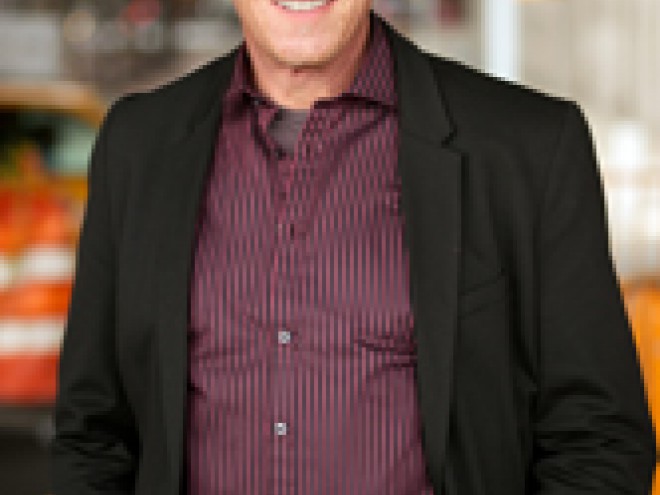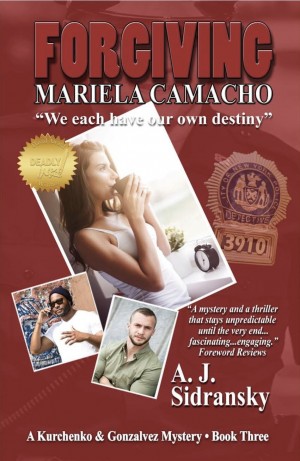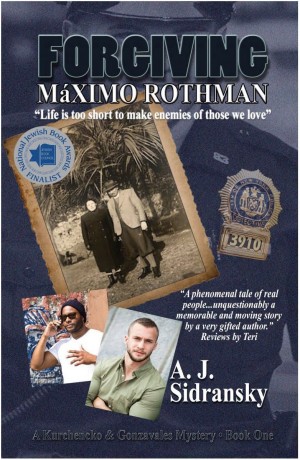
In retrospect, I feel as though I was born to write. My third-grade teacher Mrs. Zimet asked each student to tell the class about their spring vacation. My classmates described beaches in Miami and the Caribbean, skiing in Vermont, and sight-seeing at museums in Europe. By the time my turn came around I felt embarrassed to tell them about my five days with my grandparents at Lefrak City in Queens. So, I made up a story. I regaled them with a trip to Disneyland though I’d never been.
A couple of weeks later my mother was at a PTA meeting and Mrs. Zimet asked her about our trip. She was quite shocked, and, to her credit, I wasn’t punished; I was questioned as to why I lied. That conversation is for the therapist’s couch. Clearly though, I was able to write fiction from a young age.
Nine years later I was a senior in high school, on my way to college that fall. My parents asked me what I wanted to study, and I told them I wanted to study English and write novels. In unison they shook their heads and replied, “NO, NO, NO. Not a good choice for a Jewish boy, AND you’ll never make a living.” Of course, my mind went to Leon Uris, Philip Roth, and Herman Wouk. But being the good Jewish boy I was, I ended up in the real estate finance business for nearly thirty years. And I was miserable.
A lot happens in thirty years; I married, we had a son, and I had career highs and lows. At the age of fifty-one, I found my career in shambles. The business as I knew it was gone due to the Great Recession. In addition, I had begun to question the very structure of my life, and so began my mid-life crisis. My identity was wrapped up in my career, my ability to support a family. I wasn’t sure who I was, or where I belonged.
“Shalom felt as if he had been drained of poison. He took a very deep breath in a way he hadn’t in years. It was as if he was finally able to breathe freely, without fear of being heard by the ghosts around him. He took three tissues from the box on the small mahogany table next to the recliner and wiped his face…He pushed back the recliner, the foot stool rising and extending his legs. They felt light.”
Shalom Rothman, Forgiving Stephen Redmond
We had moved to Washington Heights from the Upper West Side a few years earlier. Once known as Frankfurt-on-the-Hudson, it was the home to many Jewish German refugees in the late 1930s. It is also the home to the largest population of Dominicans outside the Dominican Republic; diaspora is a concept I am very familiar with as a Jew.
With my career effectively over, I had to figure out how I was going to move forward. I was working on my debut novel, Forgiving Maximo Rothman. My perception of myself shifted to the very thing I had always seen myself being: a writer. I decided it was finally time to finish my novel.
“The silence of the jungle suits me…I breathe in the warm, moist air. It smells of guanabana, and the sea. I feel at home here. The underbrush, still wet from last night’s rain, scraped against my feet. I had traded two pairs of leather shoes in Puerta Plata for sandals like the Dominican men wear, along with some local clothing. The other settlers thought I was insane. “Going native,” they called it…
Maximo Rothman, Forgiving Maximo Rothman
Forgiving Maximo Rothman is partly based on the experiences of my uncle, Max Grunfeld. He escaped from Nazi Europe with his wife, my aunt Helen, in 1940. They found asylum in Sosua, Dominican Republic, with 854 other Mittleuropan Jews; it was established as a haven for Jewish refugees through the Evian Conference of 1938. Consequently, I was no stranger to the Dominican Republic and its people. We had visited there in 2002 and I had the unique experience of saying kaddish for my father who had died a few months earlier, in the synagogue my uncle helped build, over a Torah scroll he carried from Genoa, Italy, in 1940.
Free of the confines of a job, I became involved in the local Dominican community. I volunteered to work with a group fighting childhood obesity. Health and wellness had become my new obsession.
I joined a gym and there I made a kind of friend I hadn’t had in decades. In Spanish the term is un amigo de alma, a friend of the soul. In fact, my friend William became like a brother. We began working out together every morning; at the gym, others referred to us as los mellizos, the twins. We look nothing alike. We became inseparable.
In those months after losing my last job, I spent more and more time with William. He had an unusual effect on me. He taught me how to be tranquilo, calm. My endless neurosis began to subside; was it the result of William, exercise, my exit from the highly competitive world of New York business, or a combination of the three?
He invited me to visit his home in the Dominican Republic when he was going for a week to celebrate the first birthday of his youngest child. My first response was that I couldn’t go off to the Dominican Republic just like that. Why, he replied, You don’t have a job. He was right — I went. That first trip to Santo Domingo was transformational, the world I found was the polar opposite of the world I left.
No one has much money in Santo Domingo, yet they make do just fine. No one ever asks you what you do for a living. It’s considered rude, since what you do is a clear indicator of how much money you make, the rude question you can’t ask. It’s one of the first questions we Americans ask each other when we meet. It’s our ice breaker.
One thing that struck me was how close Dominican people get to each other physically. Their perception of personal space is different than ours. I welcomed this. My immigrant family was the same, we Hungarians are very touchy people. Americans, on the other hand, keep their distance. I missed that intimacy, and I hadn’t realized it until that moment.
My buddy’s house is in what’s called in Dominican vernacular, un patio. It’s a little neighborhood of anywhere from ten to fifty families living together in small houses and apartments. A patio is off the road, one enters from the street through a gate, and there are no cars. Often, blood, marriage, friendship, or all three, connect the families. It was very familiar; I was back in my childhood neighborhood where my entire family lived within five blocks of each other. I had rediscovered this world I had lost, this world I pined for without ever realizing it.
William took me to places tourists don’t visit. Beaches lined with restaurants blaring Salsa, filled with the locals at sunset, the first stars appearing overhead; a sight of remarkable beauty. Bars deep in the barrios, the sound of Bachata reaching into the blackness of the night, the walls appearing to move with the swaying hips of the dancers. As if by some magic, I was transported back in my mind to the tales of my uncle, as if I was standing there with him as he plunged headfirst into the Dominican world some seventy years earlier. I understood now what he missed, what he lost. I understood what I missed, and what I lost.
The week I spent there changed me deeply and triggered something in me that led to the next phase of my life. When we returned, I began to write in a new way. Subsequent trips solidified the effect and I’ve returned every winter for the past twelve years. I revel in the cadence of the place.
Each visit further propelled me to tell the story inside me. The result: Forgiving Maximo Rothman. And after that: Forgiving Stephen Redmond and Forgiving Mariela Camacho. It was in this warm, sundrenched place, so full of humanity, so far from the world I had lived in, that I found myself, again. It had taken forty years, but it had happened. I became a writer. I also became tranquilo.
“It touched him as well, though he didn’t understand the words. The passion of the music alone was enough. The sweet whine of the guitars and the vocals sparked his Russian soul, the soul he teased about endlessly. It often brought tears to his eyes for its simple emotional honesty. He realized after a week in this warm, close place, where everyone touched everyone all the time, that there was less separating him and them than connecting them to each other. He really didn’t need the language. He needed only to respond to a smile with a smile. He was something by birth — Russian, Jewish, an immigrant American who learned to love baseball. He was never sure. But he knew now what he really was. He was Dominican by choice. He would hold this place in his heart forever.”
Tolya Kurchenko, Forgiving Mariela Camacho
A.J. Sidransky writes about ordinary people faced with extraordinary situations and events. His work, including Forgiving Maximo Rothman, Forgiving Stephen Redmond, Forgiving Mariela Camacho and The Interpreter, has been described as a mystery wrapped in history and tied in a bow with a little romance.



